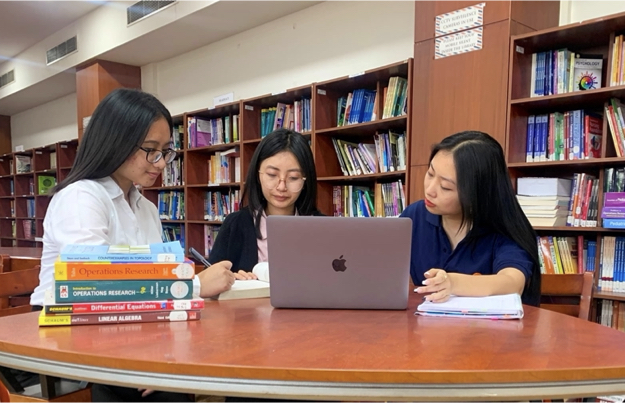ADMISSION HELPLINE

Welcome to the Digital Repository at The Assam Royal Global University. This Institutional Repository is an Institutional Repository of RGU setup to collect, organize, preserve and provide access to the intellectual (scholarly) output of RGU faculty, students, staff and others associated with the Institute. This Digital Repository serves as a platform to faculty, researchers, students and staff members of the Institute to share their research work with wider community. Institutional Repository accepts documents viz., journal articles, conference papers, book chapters, working /technical papers, reports, theses and dissertations , presentations and any other resources submitted as part of academic requirement at the Institute and other forms of scholarly documents. Wherever possible and available, we will make an effort to provide access to the full- text of the documents covered in the digital repository, without violating copyrights/rights of the author or publisher, as relevant to each work. Please feel free to write to us at library@rgu.ac , if you want to know more about this service or have any questions with regard to depositing your documents or accessing deposited documents.
Welcome to the Research Repository at The Assam Royal Global University. Research Repository is the official publications repository of The Assam Royal Global University. All the papers (Article, Conference paper, Book chapter, Book, Book review, Report etc), having RGU affiliation, are archived in this repository. Archiving papers would be beneficial to RGU researchers as it increases the web-wide visibility, and access to all users. It exposes metadata to famous academic search engines such as BASE (https://www.base-search.net). Also, it will be helpful for faculty and school administrators generate list of publications easily for various reporting requirements. RGU researchers are requested to send their papers to library@rgu.ac . Library team will help uploading the papers along with metadata in this repository.
IRINS is web-based Research Information Management (RIM) service provided by the Information and Library Network (INFLIBNET) Centre, An Inter-University Centre of University Grants Commission, Gandhinagar, Gujarat. The portal facilitates the academic, R&D organisations and faculty members, scientists to collect, curate and showcase the scholarly communication activities and provide an opportunity to create the scholarly network. The IRINS is available as free soware-as-service to the academic and R&D organisations in India. The IRINS would support to integrate the existing research management system such as HR system, course management, grant management system, institutional repository, open and commercial citation databases, scholarly publishers, etc. It has integrated with academic identity such as ORCID ID, ScopusID, Research ID, Microso Academic ID, Google Scholar ID for ingesting the scholarly publication from various sources
Most of the publishers use IP filtering as a de facto standard for authenticating authorized users in subscribing institutions and providing access to e-resources to them. While IP-based access is most convenient, safe and hassle-free authentication mechanism for publishers as well as for subscribing institutions, it has some limitations. One of the most serious limitations of IP-filtered access to e-resources is that the users can access e-resources only when they are in the Institute campus. Ideally, an authorized user should be able to access e-resources irrespective of his / her physical location at any time as long as he has access to the Internet.
In order to overcome this limitation, the RemoteLog has adopted Shibboleth, a standard-based propitiatory software, for authenticating authorized users from institutions and provide them seamless access to e-resources from anywhere, anytime. RemoteLog offers a mechanism for users to access multiple resources within a federated single sign-on framework. The goal of the RemoteLog is to allow users to access internal and external resources seamlessly using a single, institutionally controlled identity. This would not only allow authorized users to access e-resources from anywhere, anytime but would also circumvent the requirement of maintaining multiple passwords for multiple resources in multiple domains.